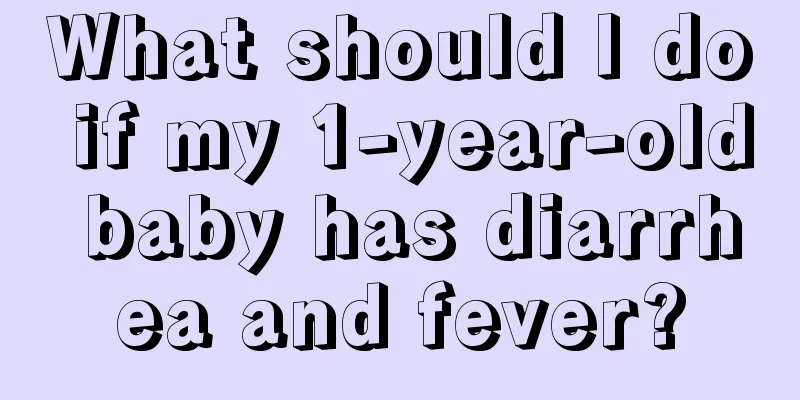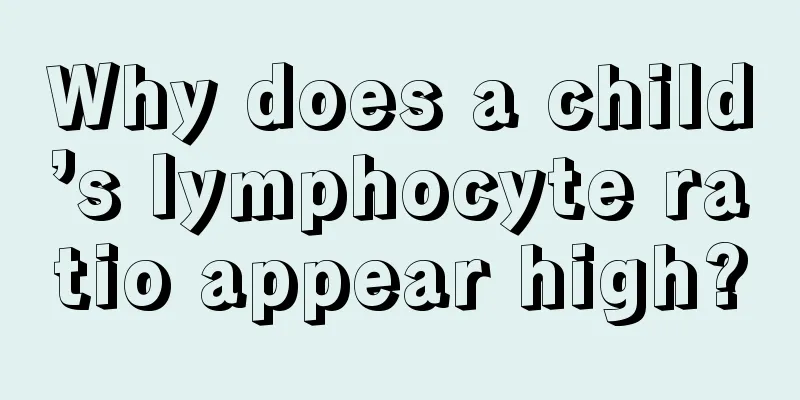Can babies with roseola take antipyretics?

|
Roseola infantum is a common viral disease that often occurs in infants under two years old. Once contracted, it will cause fever. In a short period of time, the body temperature can rise to 40 degrees, and it is a persistent high fever. However, when the body temperature drops, red papules will appear on the skin, which has a great impact on the baby's health. Can infants with roseola infantum take antipyretics? Can babies with roseola take antipyretics? You can take antipyretics for roseola in infantile rash. Roseola infantum, also known as infantile roseola, is an acute rash infectious disease common in infants and young children caused by infection with human herpes virus types 6 and 7. The clinical features are high fever for 3 to 4 days, followed by a sudden decrease in fever and the appearance of a rash, and the condition recovers quickly. Precautions for infantile rash: 1. Don’t worry too much about high fever. Roseola infantum affects almost all infants and young children, and is often the first fever a child has ever had, and it can be a high fever. What worries parents the most when roseola infantum occurs is the persistent high fever. Even if antipyretics are taken, the body temperature will rise again in a short time. But parents should note that although the baby has a high fever, his mental state is not too bad and it basically does not affect his play and eating. This is different from other diseases. After contracting roseola infantum, children can gain long-lasting immunity and rarely get the disease a second time. 2. Breastfeeding mothers need to increase the amount of fluid they drink. If the baby is still breastfeeding, the mother needs to increase the amount of fluid supplementation. When the child is sick, he or she is more dependent on the mother's breastfeeding, so try to feed as much as possible. Mothers should pay attention to eliminating foods such as eggs, fish, shrimps, garlic, leeks, etc. in their diet, and also avoid raw, cold or spicy foods. 3. Strengthen children's ability to resist virus attacks. Roseola infantum is a mild infectious disease, so in winter and spring, parents can give their children a bag of Isatis root powder every day to enhance their ability to resist viral invasion and prevent diseases. What are the main symptoms of roseola infantum? Babies are more likely to develop roseola infantum after 6 months because from this time on, the immunity they acquired from their mothers has basically disappeared. No other disease has such a similar course in different babies as roseola infantum. Common diseases always have symptoms of varying severity, and some may even have various complications. Roseola infantum has the same course regardless of age, season, or region, and there are no complications. The incubation period for emergency treatment in young children is 7 to 17 days, and the fever only lasts for 3 days in the early stage of the disease. The baby looked different than usual, looking pale and listless. His head felt hot when touched and his temperature was around 38 to 39 degrees. Sometimes symptoms such as a mild cough and a small amount of clear nasal discharge may occur. Then on the 4th day, after the fever subsided, the rash began to appear. During the first three days of fever, the baby's symptoms are exactly the same as those of a "cold", "catching a cold while sleeping" and "tonsillitis". The final diagnosis can only be made after the fever subsides and the rash appears. After the fever subsides, small red rashes like mosquito bites will appear on the baby's chest and back. These rashes will gradually spread at night and will affect the face, neck, hands and feet at night. People who know something about infant measles may mistake it for measles. |
<<: Is it normal to cough after roseola infantum?
>>: Sleeping child with foam in mouth
Recommend
Neonatal stool occult blood positive
In our lives, it is very common for newborns to h...
What medicine is used for children's urinary tract infection
Children's immunity has not been improved, wh...
What causes knee pain in children?
Many parents often hear their children complain a...
What to do if your seven-month-old baby coughs
Parents must be very concerned about their childr...
What should I do if my child has a stuffy nose and cough? A few tips for you
Mothers are very worried when their children catc...
What to do if your child has severe influenza
In the cold winter, many parents don’t want their...
Symptoms of rickets in babies
The health of the baby is always a very important...
What are the ways to improve the immunity of infants and young children?
Newborn babies have very poor immunity, and disea...
Congenital discoid meniscus in children
Almost everyone knows that the meniscus is a very...
Newborn baby's throat feels like phlegm when eating milk
When a newborn baby feels that there is phlegm in...
Why does my child’s ear become red and swollen?
People often experience swollen and painful earlo...
Six month old baby frequently wakes up at night
In everyone's impression, babies eat and slee...
What’s wrong with the small red pimples on my child’s mouth?
People often grow small red pimples on their face...
Two-month-old baby is very fussy when sleeping
A two-month-old baby is still relatively young. I...
Neonatal intestinal obstruction is a disease that cannot be ignored
For every new mother, every move of the newborn t...









